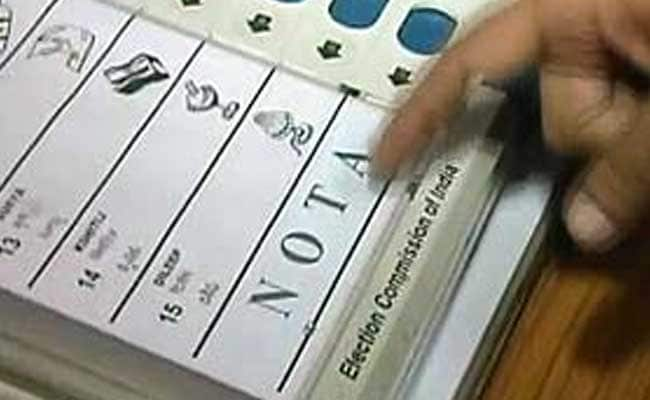Meghashree Poddar, EOI, 11 June 2024 : Social media has revolutionized communication, fostering connections across vast distances. Item powers individuals to express themselves, engage ing lobal conversations, and access information readily.
However, just like how avocado is often tasteless despite being so ridiculously healthy or how many good-looking people come with nasty characters, social media, too, does have a dark side. The constant barrage of notifications, messages, and online content can be incredibly distracting. Studies link excessive screen time to negative health outcomes, including anxiety, depression, and decreased self-esteem. Digital devices can also strain eyes, cause headaches, and disrupt sleep patterns, further impacting overall well-being.
Furthermore, the curated and often unrealistic portrayals on social media can distort students’ perceptions of reality and hinder their personal development. The constant stream of seemingly perfect lives can lead to feelings of inadequacy and social comparison, impacting self-esteem and potentially contributing to body image issues.
Social media can create pressure to conform to unrealistic beauty standards, leading to a disconnect from one’s authentic self. The infiltration of digital technology into classrooms also presents challenges. The allure of notifications and readily available online content can significantly diminish attention spans and hinder learning. Students accustomed to easily accessible information might struggle with critical thinking and thorough analysis, hindering their ability to develop deeper understanding and problem-solving skills.
This can lead to a reliance on quick online answers rather than in-depth exploration of complex topics.
Digital Detox: A call for balanced technology use:
1. Improved Focus and Attention: By disconnecting from distractions, students can regain control over their time and attention. This fosters amore mindful approach to learning, enabling them to dedicate focused time to studying and engaging in enriching activities that promote personal growth and well-being. Students can develop stronger time management skills and avoid the temptation to multitask, leading to more efficient learning.
2. Enhanced Well-being: A digital detox can reduce stress, anxiety, and improve sleep quality. This leads to increased energy levels, improved focus, and overall well-being. Students can experience a sense of calm and clarity that can benefit both academic and personal pursuits.
3. Stronger Relationships: Disconnecting from screens allows for stronger connections with friends and family through face-to-face interactions. It fosters communication, empathy, and deeper understanding. Students can learn valuable social skills that are essential for success in all aspects of life.
4. Boosted Confidence: Stepping away from the carefully curated world of social media can help students develop a more positive self-image and embrace their authentic selves, free from the pressure to conform to unrealistic online portrayals.
Students can focus on their own strengths and interests, fostering a sense of self-worth and confidence. Digital detox periods offer a valuable opportunity for students to cultivate stronger interpersonal relationships. Disconnecting from screens allows for quality time with friends and family, fostering face-to-face interactions and strengthening social skills.
Additionally, it allows for self-reflection and exploration of interests outside the digital realm. Students can rediscover the joy of real-world activities, engage in creative pursuits, or connect with nature. While the overuse of social media can be detrimental, this article isn’t about giving up technology. It’s about taking back control of our time, focus, and happiness.
A balanced regimen must include:
*Social Media Audit:Regularly evaluate online platforms. Identify and unfollow accounts that create negativity or encourage social comparison. Focus on following accounts that provide positive, inspiring, or educational content.
*Time Tracking: Utilize time-tracking apps or features within social media platforms to monitor daily usage. Analyze the data to identify peak us age times and areas for improvement. Set realistic goals for reducing screen time and track your progress.
*Digital-Free Zones: Designate specific times or areas as “digital-free,” such as during meals, before bed, or in specific study areas. Implement “no-phone” policies during family or social gatherings to enhance real-life interactions.
*Mindful Consumption: Be intentional about the content you engage with. Limit passive scrolling and set a purpose for each social media session. Seek out informative and inspiring content that promotes learning and personal growth.
*Notification Management: Turn off non-essential notifications to minimize distractions and maintain focus.
Consider scheduling specific times to check social media accounts, rather than constantly being bombarded with notifications.
*Digital Detox Periods: Plan regular breaks from social media, such as a weekend without access. Use this time to engage in offline activities, reconnect with nature, and reassess digital habits. Evaluate the impact on your mental and emotional state.
Consider incorporating mindfulness practices, such as meditation or yoga, to further enhance well-being. Technology offers many benefits, but it’s essential to maintain a healthy balance. By implementing these strategies, students can reclaim control over their time, attention, and well-being. This fosters a more positive and productive learning experience, allowing them to thrive in both academic and personal spheres.
Students who are well-rested, focused, and connected to the real world are better equipped to succeed in their studies and build meaningful relationships.
(The views are the author’s personal)






